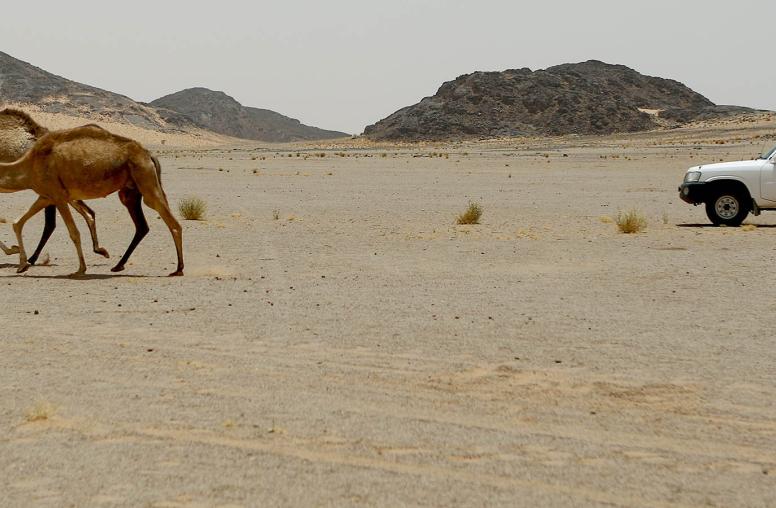Justice and Security Dialogues in the Sahel and Maghreb
A USIP Project Fact Sheet
When violent conflict erupts, its roots often must be found and healed at the community level. Amid such turmoil, however, government officials, police, and community leaders are likely to mistrust each other—a breakdown in relations that opens space for security threats, including violent extremism and organized crime.
USIP’S Work
For a decade worldwide, and since 2015 in the Sahel and Maghreb, the U.S. Institute of Peace has promoted justice and security reforms in part through an approach it pioneered—Justice and Security Dialogues. These community-level dialogues bring security and justice providers together with local residents to dispel mistrust and build cooperation to tackle urgent security concerns.
USIP teams, working with local partners, first gather representatives of all the relevant groups in a community to discuss and collectively identify what has gone wrong. The dialogues then lead the community toward practical, concrete solutions of its security problems—which can range from robberies and break-ins to weapons smuggling. Overall, the process emphasizes openness and transparency, and generally lasts for a year or longer.
In Justice and Security Dialogues, USIP and its local partners lead communities to make changes by sponsoring outreach campaigns and policy forums, and by mentoring participants. They promote and develop relationships, mutual understanding, and knowledge-sharing among residents, government officials and police. The result is citizens who are active in the safety of their community, and a more effective and accountable local security force.
USIP has conducted Justice and Security Dialogues in 12 countries confronting domestic turmoil, from Burma to Tanzania. The process is now being used in six localities of the Sahel and Maghreb regions: in Burkina Faso, Mali, Niger, Nigeria, Senegal, and Tunisia. Recent achievements include:
- Improving trust. A rise in robberies and break-ins in Saaba, a rural locality in southern Burkina Faso, only exacerbated existing tensions between police and a local vigilante group. Dialogue has led the two forces to cooperate, with both working collectively to improve security and reduce criminal activity in the region.
- Creating joint solutions to security problems. In Senegal, a dialogue in a region of Dakar improved the sharing of information between community members and police. Residents who once saw the police as adversaries now consider them partners. Together, they reduced recurrent clashes between local sports fans and church-goers by relocating a sports stadium entrance that had faced a church.
- Repairing ruptures between police and communities. In Nigeria, residents in a neighborhood of the city of Jos burned down the police station and forced police out of their community. Spurred by dialogue, community members donated land for a new station, and cooperated with police to get it built and restore police services.
The Origins of Justice and Security Dialogues
USIP started its first Justice and Security Dialogue in Nepal in 2007 to restore trust between police and communities following a 10-year civil war. The dialogue gathered security forces and civil society groups who jointly devised solutions to combat drug abuse and dispel prejudices among ethnic and religious groups, and resolved violent disputes.




